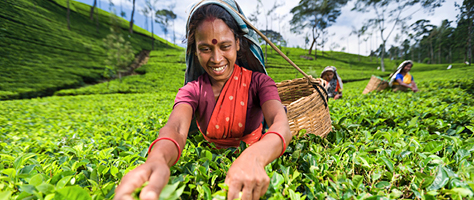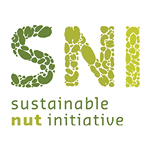< Previous Page
Modern Slavery and Human Rights
As a retailer with global supply chains, ALDI recognises its responsibility towards acknowledging and protecting Human Rights.
Our ALDI Business Partner Sustainability Standards are contractually binding and prohibit Human Rights infringements, such as forced labour and child labour, as well as discrimination in any form. They also underpin workers’ rights to freedom of association and collective bargaining. To read our Business Partner Sustainability Standards, see here. Our commitments to mitigate modern slavery risks are set out further in our International Policy on Forced Labour. Find out how ALDI is committed to respecting human rights and tackling modern slavery below.
ALDI’s Commitment to Respecting Human Rights

We expect our employees, management and business partners to respect human rights and to ensure that business activities comply with our commitments, such as our International Policy Statement for Human Rights. At ALDI, we do not tolerate any form of forced labour, child labour or workplace discrimination. Our Gender Equality Action Plan integrates a gender-sensitive approach into our activities and structures. Our Standards require business partners to pay workers in compliance with the local law. We also support international efforts to pay workers a living wage.
To verify that our human rights standards are upheld, all production facilities in high risk countries and categories are required to have a valid third party audit. These on-site audits performed by independent social compliance auditors are a key part of our Global Social Monitoring Program. We review audits and conduct remediation when necessary.
ALDI is Tackling Modern Slavery
The International Labour Organization (ILO) and Walk Free estimate there are 50 million people living in conditions of modern slavery worldwide*. According to the Global Slavery Index approximately 41,000 people in Australia are living in modern slavery**. ALDI is committed to minimising and preventing the risk of modern slavery in our operations and supply chains.
The Modern Slavery Act 2018 requires Australian businesses with annual revenue of more than $100 million to publish annual statements on the steps they are taking to address modern slavery in their operations. The passing of this Bill is a huge step in the right direction to eliminate modern slavery in the supply chains of Australian businesses. Our statement explains our steps to prevent modern slavery and human trafficking in our business and supply chains.
ALDI’s approach toward modern slavery is based on prevention, detection, and remediation. Forced labour and the exploitation of vulnerable workers are abuses of basic human rights and have no place in our business.
At ALDI we have three core values that guide everything we do: simplicity, consistency, and responsibility. We are committed to operating responsibly and providing value without cutting corners or compromising the way we do business.
You can read our Modern Slavery Statements here:
We are taking action through several ongoing initiatives:
ALDI Business Partner Sustainability Standards
Our Global Social Monitoring Program monitors adherence to our ALDI Business Partner Sustainability Standards. The program promotes the continuous improvement of working conditions in our suppliers’ facilities. Production facilities in high risk areas are required to have a valid third party social audit such as SMETA (Sedex Members Ethical Trade Audit). If any issues are found, our team supports our suppliers to develop and execute a corrective action plan.
Australian Fresh Produce Social Monitoring Program
We have an 'Australia first' sourcing aproach to our fresh produce. In the global context, Australia is a low-risk country for modern slavery. However, we acknowledge there is an increased risk of modern slavery in the fresh produce sector in Australia, due to the use of labour hire providers and their increased vulnerability of temprary, seasonal and migrant workers.
We work with our business partners to monitor compliance through out Fresh Produce Social Monotiring Program (Fresh Produce SMP), and have a continuous improvement approach to social standards. Our Fresh Produce SMP requires business partners to have third-party social audits conducted on final processing facilities. We accept both Fair Farms and Sedex Members Ethical Trade Audit (SMETA) social audits. We collaborate with our business partners to ensure identified audit findings are satisfactorily remediated.
Global Social Monitoring Program
We have developed and implemented a Global Social Monitoring Program (GSMP) to monitor suppliers’ adherence to our ALDI Business Partner Sustainability Standards. When final production of a product takes place in a high-risk country and commodity group, the site will undergo a third-party audit report. This includes various food and non-food products produced overseas.
ALDI Sustainability Assessments
ALDI Sustainability Assessments (ASAs) are reviews of production facilities that are carried out by our own employees together with external expert auditors and business partner representatives. The goal is to gain a better understanding of our supply chains and to foster stronger relationships with our business partners. ASAs are done on an announced, semi-announced or unannounced basis.
Corporate Responsibility Supplier Evaluation (CRSE)
Our international teams based in Hong Kong and Bangladesh annually evaluate the sustainability performance for all our international busiess partners providing garment textiles, household textiles, shoes and, fish and seafood in high risk countries.
The Corporate Responsibility Supplier Evaluation (CRSE) focuses on our business partners’ social and environmental compliance management systems as well as their production facilities’ sustainability performance. The evaluation supports long-term relationships with those business partners who demonstrate strong sustainability practices. Australia will pilot our own CRSE in the Australian Fresh Produce Industry.
Ensuring our Social Standards are met in Bangladesh and Pakistan
There are specific risks when sourcing from Bangladesh and Pakistan, such as fire, electrical and building safety. Our Bangladesh and Pakistan Minimum Requirements set more stringent standards in order to mitigate these risks for workers in our supply chain.
Australian Fresh Produce
ALDI Australia has an Australia first sourcing approach for all our fresh produce. We work closely with our business partners to monitor the supply chain’s social compliance, recognising that there is an increased risk of modern slavery in the fresh produce sector due to the use of labour hire providers, and the vulnerability of seasonal and migrant workers.
Responsible Sourcing of Cocoa, Coffee and Tea
In order to mitigate modern slavery within our cocoa, coffee and tea supply chains, we require third party certification from Fairtrade or Rainforest Alliance. We are proud to say that 100% of our own-label chocolate and tea, and over 80% of our own-label coffee is now sourced from certified providers. Learn more about our responsibly sourced coffee, tea and cocoa here.

Sustainable Nut Initiative
Since 2020, the ALDI SOUTH Group has been an active member of the Sustainable Nut Initiative (SNI). SNI is a pre-competitive collaboration platform that brings together key players in global nut supply chains, from processors to roasters to retailers. Through its active involvement, the ALDI SOUTH Group has developed a risk based approach to tackle current and future sustainability issues at a sector level, as well as to develop scalable
approaches for improving traceability and sustainable farming practices. You can find out more about the work ALDI is doing in our global nut supply chains here.We have an impact-led approach towards improving working conditions in the cultivation and processing of nuts. We strive to drive improvements by collaboration and transformation in our nut supply chains.
ALDI is the first discount retailer to join the Sustainable Nut Initiative. Our membership of the Initiative shows our commitment to fostering fair working conditions in the processing of nuts. Learn more about the Initiative here.
Grievance Mechanism Projects
ALDI introduced two avenues for workers to report Human Rights concerns in the supply chain:
Partnership with the Issara Institute
We are working together with the Issara Institute to empower workers to speak up if they have concerns about their working environment in ALDI’s Thai food supply chains. Issara Institute’s worker voice channels includes a 24 hour multilingual helpline, social media messaging and the “Golden Dreams” smartphone application.
amfori Speak for Change Grievance Mechanism
ALDI is a member of amfori, a global business association driving sustainable trade. We take part in amfori Speak for Change, amfori’s supply chain grievance mechanism set up to receive and address complaints to help workers, communities, rightsholders and their representatives access remedy if they have been negatively impacted in our supply chain.
For more information, visit www.amfori.org
The Centre for Child Rights and Business
The Centre for Child Rights and Business (The Centre) supports businesses to deliver improvements within their supply chains that benefit workers, families and children, as well as creating positive business outcomes. The Centre offers global expertise, services, support, research and insights covering a broad range of child rights and business issues across multiple countries.
ALDI’s partnership with The Centre includes child labour prevention and remediation, child rights risk assessments, packages to support migrant parent workers, young workers and other vulnerable groups.
International Partnerships
To make significant impact, we have established a wide range of partnerships with organisations such as suppliers, manufacturers, retailers, governments, and NGOs to increase our leverage and align our approaches to human rights due diligence. Find out more information on the important partnerships ALDI has for addressing human rights issues across the ALDI SOUTH Group here.
We understand that there are no quick-fixes or shortcuts. Improvement will only come through regular monitoring, dialogue, and action. ALDI’s ongoing commitment to upholding human rights and tackling modern slavery can be further seen in our international Vision for 2030.
You can shop responsibly with ALDI
You can shop responsibly with ALDI, confident that the measures we have in place outline clear human rights standards and monitor our business partners’ compliance with them.

2. Buy Rainforest Certified and Fairtrade products
Look for the Rainforest Alliance and Fairtrade logos on the packaging of certain ALDI products. These certifications ensure that the product has been responsibly sourced.
Frequently Asked Questions
What is modern slavery?
The Australian Government defines modern slavery as encompassing eight types of serious exploitation including:
- human trafficking,
- slavery,
- servitude,
- forced marriage or labour,
- debt bondage,
- the worst forms of child labour, and
- deceptive recruiting for labour.
What is the Modern Slavery Act?
The Modern Slavery Act 2018 aims to address modern slavery by requiring businesses to be transparent about the efforts they undertake to identify and address modern slavery risks in their operations and supply chain. All large businesses with revenue over $100 million must report annually and ALDI has published a Modern Slavery Statement every year since 2019.
